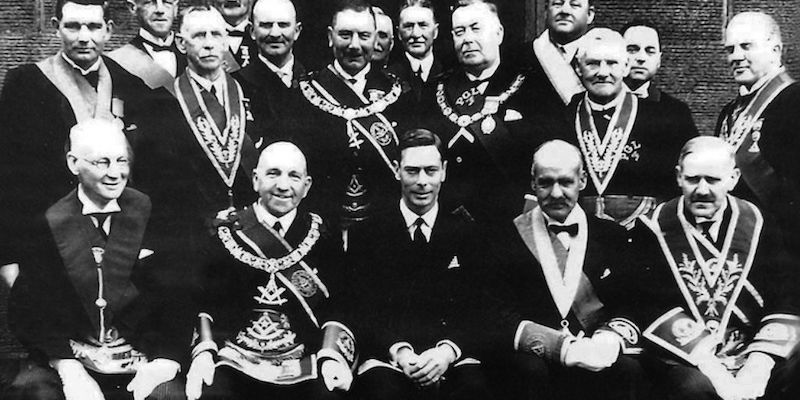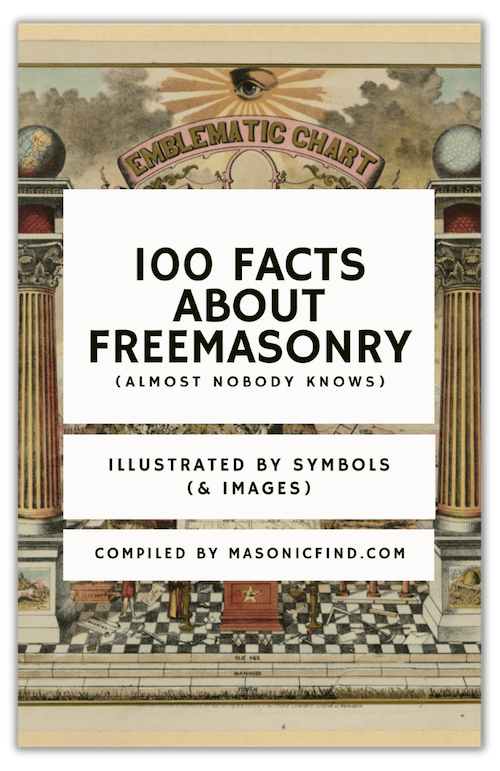Freemasonry is a fraternity that values personal liberty and individual responsibility.
One of the fundamental principles of the fraternity is the idea of “coming out of your own freewill and accord,” which refers to a candidate’s voluntary decision to join the fraternity.
In this article, we will explore the meaning and significance of this sentence in Freemasonry.

What Does “Coming Out of Your Own Freewill and Accord” Really Mean in Freemasonry?
What does freewill mean?
In the context of Freemasonry, “freewill” refers to the idea that membership in the fraternity must be voluntary and not based on any form of coercion or undue influence. It is a fundamental principle of the fraternity that candidates must come to join of their own freewill and accord, meaning that they must make a conscious and informed decision to join the fraternity without any external pressure or influence.
In general, the concept of “freewill” refers to the ability to make choices and decisions freely and without external constraint or coercion. It is the belief that individuals have the freedom to act and think independently, and that they are not determined or controlled by external forces. The concept of freewill is often associated with ideas of personal responsibility and accountability, as it implies that individuals are responsible for their own actions and decisions.
What does accord mean?
In the context of Freemasonry, “accord” refers to agreement or harmony. In the phrase “come out of your own freewill and accord,” “accord” refers to the candidate’s agreement to join the fraternity and to uphold the principles and values of the fraternity. It implies that the candidate is in harmony with the fraternity’s values and ideals, and is committed to working with other members of the fraternity to achieve the goals of the fraternity.
Put together, the phrase “come out of your own freewill and accord” refers to a candidate’s voluntary decision to join the fraternity.
It is a fundamental principle of Freemasonry that membership must be voluntary and not coerced in any way.
This phrase is often used during the initiation ceremony to emphasize that the candidate is joining the fraternity of their own free will and not under any duress or influence.
It is also a reminder that the candidate is responsible for their own actions and decisions within the fraternity and that they are expected to conduct themselves with integrity and honor.
Why Is This Principle Important in Freemasonry?

The principle of “coming out of your own freewill and accord” is important in Freemasonry because it reflects the fraternity’s values of personal liberty and individual responsibility.
It is a fundamental belief of Freemasonry that membership in the fraternity should be voluntary and not based on any form of coercion or undue influence.
This principle is important because it ensures that each member of the fraternity has made a conscious and informed decision to join and that they are committed to the principles and values of the fraternity.
Additionally, the principle of “coming out of your own freewill and accord” is important because it allows each member to fully embrace the values and ideals of Freemasonry without any external pressure or influence.
It allows each member to engage with the fraternity on their own terms, and to freely express their own beliefs and opinions within the fraternity.
This promotes a sense of mutual respect and understanding within the fraternity, and helps to create a strong sense of community and brotherhood among its members.
Is “Coming Out of Your Own Freewill and Accord” a Requirement for Becoming a Freemason?

Yes, the principle of “coming out of your own freewill and accord” is a requirement for becoming a member of Freemasonry.
In order to join the fraternity, a candidate must express a genuine desire to become a member and must be willing to make the commitment to the principles and values of the fraternity.
This includes a commitment to personal growth and self-improvement, as well as a commitment to upholding the ethical and moral values of Freemasonry.
It is important to note that becoming a member of Freemasonry is a serious undertaking, and candidates are expected to carefully consider their decision before joining.
It is not a decision that should be taken lightly, and candidates should be sure that they are fully committed to the values and ideals of the fraternity before joining.
If a candidate is unsure about whether they want to join Freemasonry, they should feel free to discuss their concerns with a member of the fraternity or with their local Masonic Lodge.
What If a Candidate Is Not Coming Out of Their Own Freewill?
If a candidate is not coming to join Freemasonry of their own freewill, they should not be initiated into the fraternity.
Freemasonry places a strong emphasis on the principle of “coming out of your own freewill and accord,” and it is a fundamental requirement for membership.
If a candidate is not genuinely interested in joining the fraternity and is not fully committed to the principles and values of the fraternity, they should not be initiated.
It is important to note that Freemasonry does not allow for any form of coercion or undue influence to be used in the recruitment of new members.
If a candidate feels that they are being pressured or influenced in any way to join the fraternity, they should speak with a member of the fraternity or with their local Masonic Lodge about their concerns.
It is essential that each member of the fraternity has made a voluntary and informed decision to join and that they are fully committed to the values and ideals of the fraternity.

FREE DOWNLOAD: 100 FACTS ABOUT FREEMASONRY (ALMOST NOBODY KNOWS)
Join the 10,000+ Brethren from around the world inside our weekly Masonic newsletter and get our best selling ebook for free (usual value: $20).
In conclusion…
“Coming out of your own freewill and accord” is a fundamental principle of Freemasonry that reflects the fraternity’s values of personal liberty and individual responsibility.
It ensures that each member has made a conscious and informed decision to join the fraternity, and that they are committed to the principles and values of the fraternity
This principle is essential to the fraternity’s commitment to ethical and moral behavior, and helps to create a strong sense of community and brotherhood among its members.